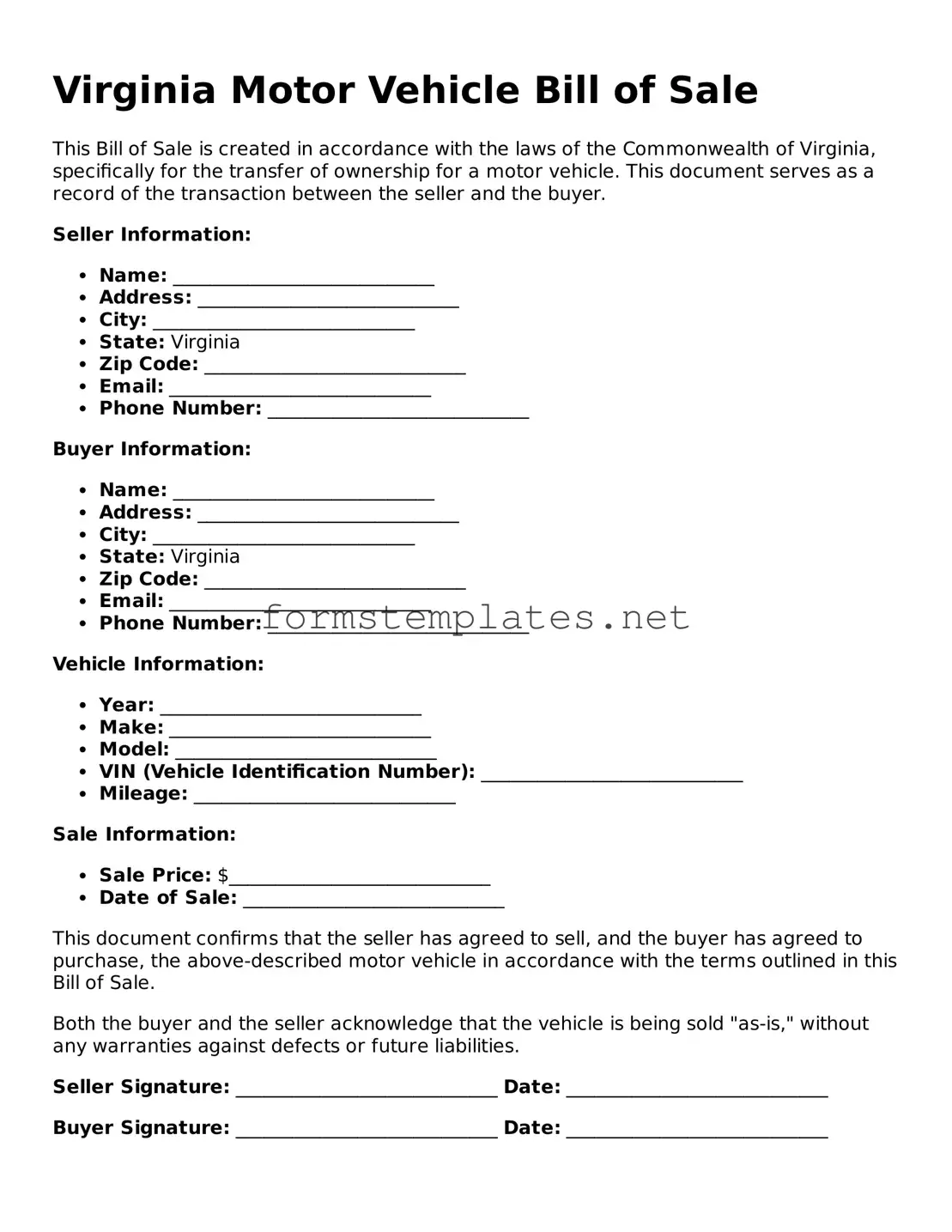Attorney-Approved Virginia Motor Vehicle Bill of Sale Template
The Virginia Motor Vehicle Bill of Sale form is a legal document that records the transfer of ownership of a vehicle from one party to another. This form serves as proof of the transaction and includes essential details about the vehicle and the buyer and seller. Understanding its importance can help ensure a smooth and lawful transfer process.
Open Editor Now

Attorney-Approved Virginia Motor Vehicle Bill of Sale Template
Open Editor Now

Open Editor Now
or
⇓ PDF Form
Your form still needs attention
Finalize Motor Vehicle Bill of Sale online — simple edits, saving, and download.